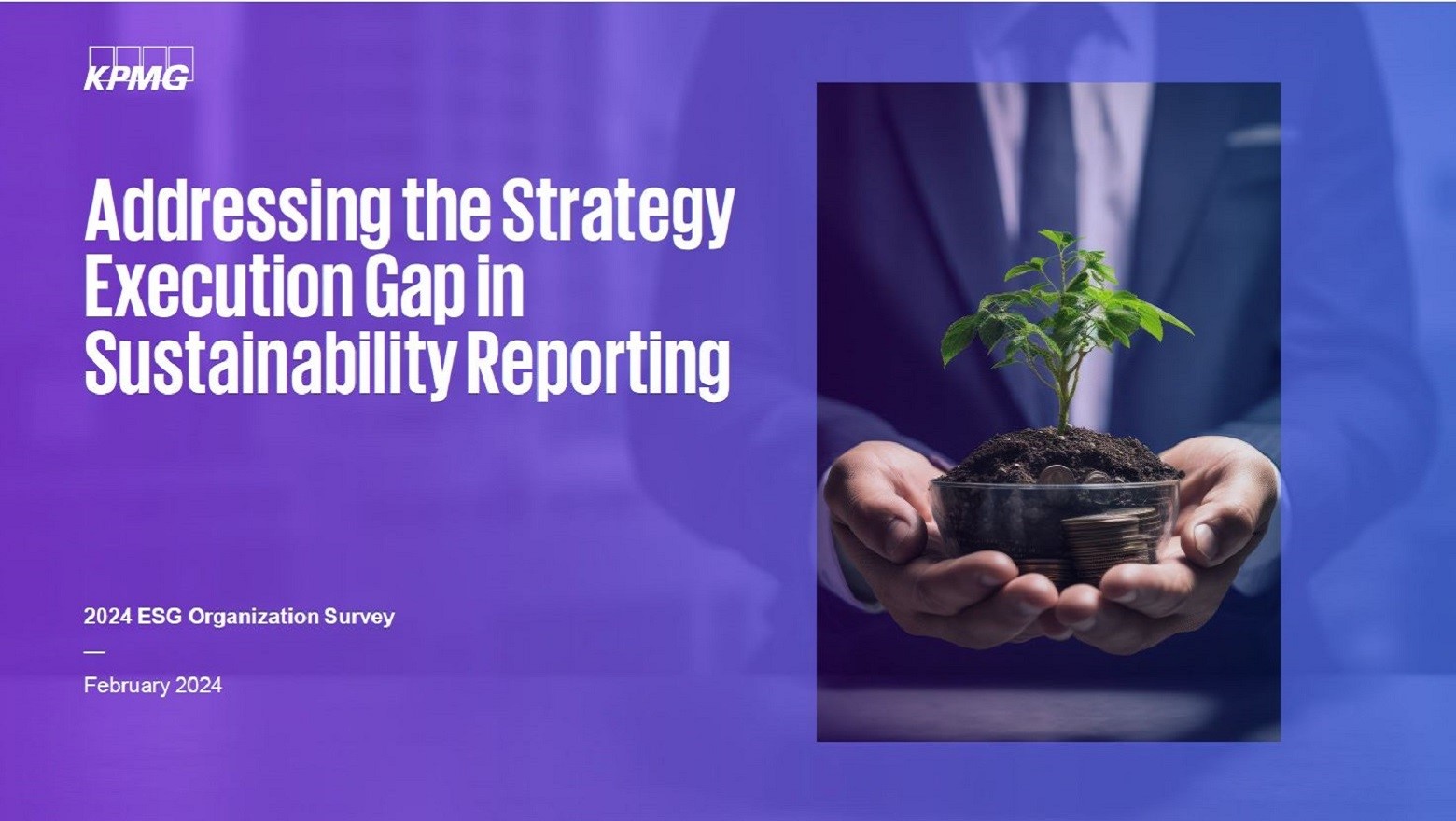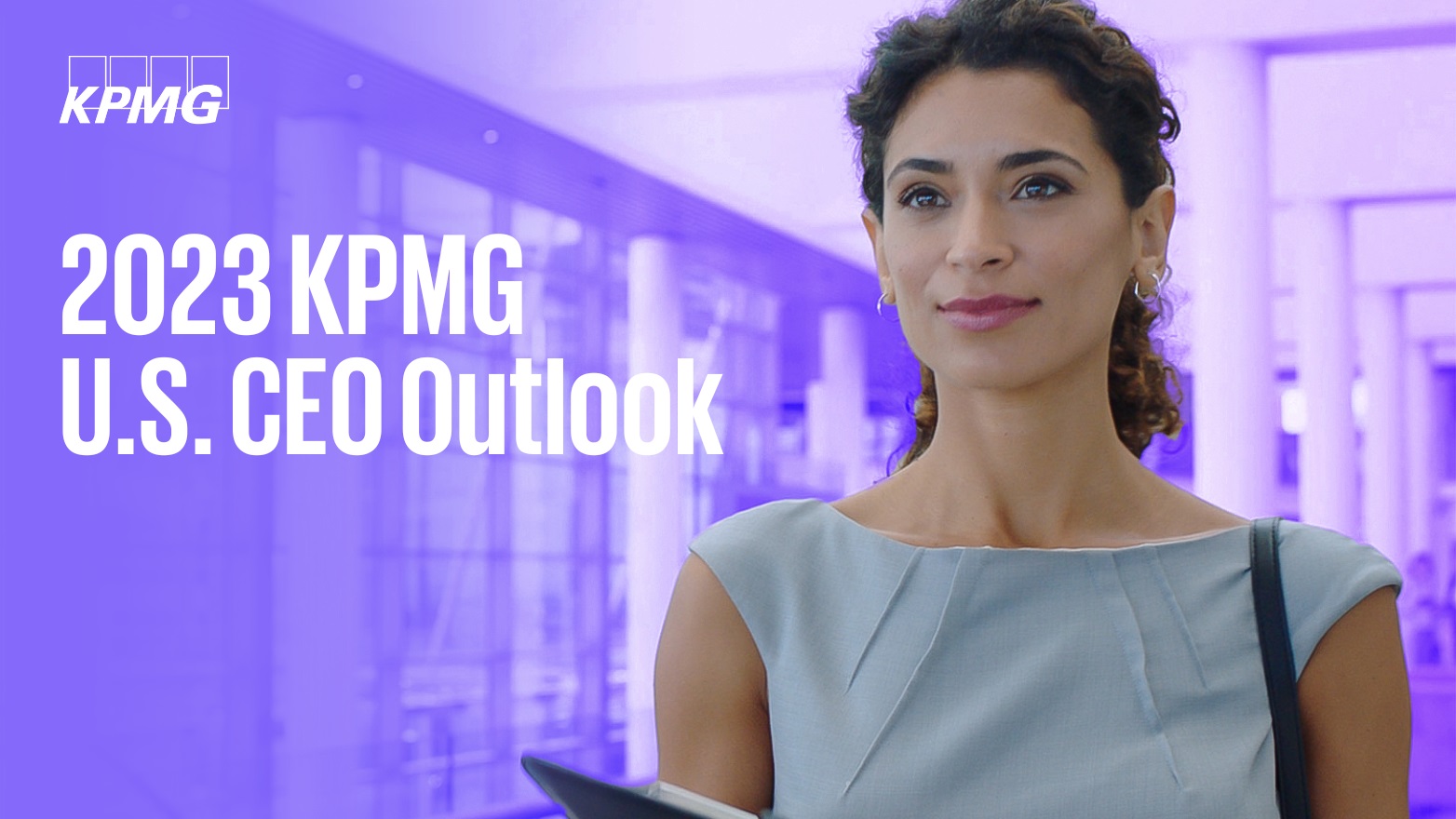Instant Reactions to the Finalized SEC Climate Disclosure Rule
In response to the SEC releasing finalized rules on climate-related disclosures for investors, KPMG U.S. ESG Leader Rob Fisher and KPMG ESG Audit Leader Maura Hodge released the following statements. Additionally, we have provided recent insights from KPMG research on ESG strategy, operations and reporting trends.
Join us in our KPMG Live Event Series to discuss what companies need to know to comply with the SEC climate rule, along with its implications on businesses’ strategy, transformation, data, and technology.
Rob Fisher on the strategic implications of the SEC’s final climate rule:
“Regardless of whether it marks a watershed moment or a watered-down rule, companies are now facing a wave of global requirements. Amidst these disclosure requirements, the organizations that view new reporting requirements as an integral part of their broader strategy will find themselves in a better position to realize the full value sustainability initiatives can bring to their business.”
KPMG’s recent survey found 90% of business leaders report they will increase their ESG investment in the next three years. (Link) Per our 2023 CEO Outlook, 58% of U.S. CEOs expect to see significant returns from their ESG investments in the next three-to-five years with 24% predicting one-to-three years.
Maura Hodge on the challenges of interoperability:
“The alphabet soup of voluntary climate and sustainability reporting frameworks of several years ago has become the patchwork quilt of climate and sustainability reporting requirements of today. Companies have real work to do to understand their various reporting mandates, while navigating dual challenges of continued policy uncertainty and heightened compliance risks.”
“Organizations complying with the E.U.’s CSRD requirements might be doing 75% of the work to comply with the SEC. This overlap raises the question of equivalence and whether jurisdictions can recognize other rules, reducing the burden on companies.”
Seventy-five percent of companies globally feel they are not ready to have their ESG data assured and meet new regulatory requirements. (Link)
Fisher on the elimination of Scope 3 from the SEC rule:
“Scope 3 may be out of the SEC’s climate rule but it’s very much in scope for U.S. multinationals and likely many private companies. The SEC’s rule followed actions of the EU, California and the ISSB, all of which require Scope 3 reporting. Regulatory relief in one jurisdiction does not alter the burden imposed in others.”
All companies are feeling pressure from stakeholders, but supply chain partners are the new tip of the spear. Nearly 90% of businesses say they are feeling at least some pressure from supply chain partners to engage on sustainability. (Link)
Hodge on the 1% threshold:
“The connection of climate risk to the financial statements is incredibly important given the purpose of the rule is to provide decision-useful information to investors. While the rule limits the 1% threshold relative to the proposal, the challenge for CFOs will continue to be defining severe weather events and the dollars attached to them. Too little and a company is under-reporting risks, too much and companies will blur useful and non-useful information. Working through that ambiguity will be critical.”
Fisher on whether AI will ease the regulatory burden:
“An unprecedented shift awaits us with the convergence of AI and the final SEC Climate Rule. When the climate rule was initially proposed, generative AI was barely a concept within organizations. Today, generative AI is an imperative and gives organizations a path to more effectively report and unearth insights to drive strategy. However, to get to that end state, businesses must enhance their data management strategy, moving past spreadsheets into more specialized ESG systems.”
Forty-nine percent of business leaders report Gen AI will play an important (31%) or transformational role (18%) in their sustainability strategy, while 46% believe it’s too early to tell. (Slide 21). Separately, more than half of respondents (58%) indicated they plan to improve their data analysis and consolidation using AI/ML in the next three years (Slide 12).
Hodge on the speed it will take for companies to comply:
“It has taken over a century to develop modern financial reporting, meanwhile we're trying to sprint on sustainability reporting in just a few years. Standing up sustainability reporting capabilities that meet the rigor of financial reporting is no walk in the park for companies and the clock is ticking.”
“The final rule requires disclosures starting in phases from 2026 for 2025, while pushing assurance out. Organizations should focus on their path to limited assurance as a baseline, identifying quick wins early with the end game in mind.”
Fifty-one percent of business leaders reported the lack of time to address ESG requirements kept them up at night, the most of all risks asked. (Slide 15)
Hodge on Scope 1 and 2 reporting requirements and the question of materiality
“Scope 1 and 2 reporting requirements are limited to larger registrants if deemed material to the registrant's business strategy, results of operations or financial condition. This will put a spotlight on how companies assess materiality of these emissions and will likely be a focal point of discussion as organizations evaluate the rule.”
Explore more

Addressing the Strategy Execution Gap in Sustainability Reporting
Businesses are committed to investing in ESG capabilities over the next three years as both reporting requirements and stakeholder demands ramp up, and many leaders and employees think they are on the right track.

KPMG Study: CEOs Focused on Game-Changing Investments in M&A and Generative AI to Drive Growth
CEO Confidence in Long-Term Growth Prospects of Their Companies More Subdued. Myriad Risks to Growth include Geopolitics and Political Uncertainty, Disruptive Technology

KPMG Survey: Business Leaders Bullish on ESG Strategies Driving Value, Execution Challenges Remain
Business leaders report ESG engagement is delivering financial value across M&A, customer engagement, and investor relations and they expect that to increase in the next three to five years.





